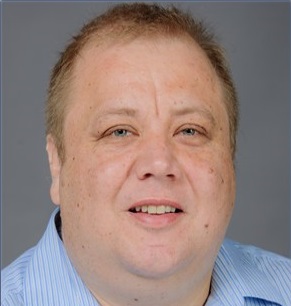Department of Computer Science
Colorado State University
Fort Collins, Colorado, United States
The objective of this half-day course is to teach other researchers and HCI professionals how to conduct elicitation studies. This course will guide participants through the design, execution, and analysis of an elicitation study, allowing practitioners to better understand papers on elicitation and to run their own elicitation studies.
This course will cover when to run an elicitation study, what can be gained from running an elicitation study, elicitation design, technology selection, input modality selection, how to display referents (i.e., commands being elicited), and how to interpret/analyze elicitation results. This course will also cover where the state-of-the-art is in elicitation and what the current best practices are.
The main benefits of this tutorial are the development of a better understanding of elicitation study design and an improved ability to critically assess elicitation studies.
Researchers, User experience designers, HCI practitioners, and students of all ages.
This course will be taught using Zoom or HCII's preferred online conferencing service. Additional tools used may include a text editor if participants wish to take notes. The tutorial leaders will use webcams and microphones. Participants are encouraged to use a webcam but using a microphone alone will work.

Adam S. Williams is a soon to defend Computer Science Ph.D. candidate (Dec. 10th) at Colorado State University. He researches multi-modal interactions in augmented and virtual reality. Recently, his work has transitioned to researching how users interact in complex stereoscope environments, such as those encountered when using immersive analytics platforms.

Francisco R. Ortega is an Assistant Professor at Colorado State University (CSU) and Director of the Natural User Interaction lab (NUILAB). Dr. Ortega earned his Ph.D. in Computer Science (CS) in the field of Human-Computer Interaction (HCI) and 3D User Interfaces (3DUI) from Florida International University (FIU). He also held the position of Post-Doc and Visiting Assistant Professor at FIU between February 2015 to July 2018. Broadly speaking, his research has focused on multimodal and unimodal interaction (gesture-centric), which includes gesture recognition and elicitation (e.g., a form of participatory design). His main research area focuses on improving user interaction by (a) multimodal elicitation, (b) developing interactive techniques, and (c) improving augmented reality visualization techniques. The primary domains for interaction include immersive analytics, assembly, Navy use cases, and collaborative environments using augmented reality headsets.
Dr. Ortega's funding record comes from National Science Foundation (NSF), DARPA, and Office of Naval Research ONR), among others. He was a co-PI for the DARPA Communicating with Computers project (over 4 million dollars). He is currently a PI for a 3-year effort for ONR (PM: Dr. Peter Squire) titled Perceptual/Cognitive Aspects of Augmented Reality: Experimental Research and a Computational Model along co-PIs Dr. Chris Wickens and Dr. Ben Clegg.
Together, they have published elicitation studies at venues including IEEE TVCG, ACM ISS, MDPI. They have co-authored a book on elicitation design and worked together performing elicitation across a variety of 3-dimensional displays.